If you are looking to enjoy a permanent or non-permanent life in Spain, we recommend you follow this advice below:-
Advice before buying a property:
– Find a lawyer who speaks good English as well as Spanish, who will explain everything properly to you and detail the costs. They will carry out searches, as it is vital to check a property is free of debts, has a title deed, check licences, make sure all documents are in order and ensure the property has been built properly (or even been built!) and legally without claims on it from a third party
– Apply for a NIE number (identification number for foreigners). You will need it to buy a property, car, setting up a bank account, get a new mobile phone etc.
– Make sure you are aware of the taxes and costs you will incur; 10% buying tax, notary and land registry fees, legal fees, any mortgage costs, wills, NIES, house insurance, and power of attorney, if needed.
– It is important that you have a First Occupation Licence for your house if you are buying from a builder. You can buy it without the First Occupation Licence but you need to be aware that then you may have to pay the Town Hall and architect for a new one. So it is not illegal to sell a property without an LFO, but it is illegal to force a buyer to complete without one. The developer is contractually obliged to produce an LFO at the time of completion and not doing so would be breach of contract (unless the buyer waives this obligation).
– In the Valencia Region (including the Orihuela Costa), if you are buying a resale property it should have a Licence of Second Occupation. The original LFO is for 5 years. After 5 years, if there is going to be a change of ownership, the seller needs to apply for a Licence of Second Occupation. It is the seller´s responsibility.
– If moving funds and changing currency, seek specialist advice on transferring your money to Spain without high bank charges and poor exchange rates.
Once a property is purchased:-
– Register at the local Town Hall on the “Padron”. This is the equivalent of placing yourself on the voters roll in Spain. The Padron enables the town hall to do a head count on the number of permanent dwellers in the area and therefore petition for grants to maintain and improve the infrastructure. The Padron Certificate is needed to register at a health centre, getting children into school and also for a variety of other matters. It has a validity between 30 – 90 days, however once obtained only needs to be updated when you actually need to show it to the authorities.
– Apply for a Residencia. All EU citizens planning to reside in Spain for more than three months per year must obtain the form of Residents Certificate (Residencia). This is the green Certificate issued by the offices of Extranjeria/National Police.
– The Residents certificate is a document that certifies your residence in Spain with the Central Register of Foreigners (Registro Central de Extranjeros) and lists your name, where you live, your nationality, the date you registered, and your Foreigner’s Identity Number (the NIE). Having a Residents Certificate does not mean that you are fiscally resident. A fiscal resident means you file income tax returns in Spain. Your NIE and Residencia can be in one document.
– If your country has a reciprocal agreement with Spain, apply for a S1 form to obtain a medical card. If not covered by the Social Security system, it is essential to take out a private medical plan.
– If your car has a foreign registration plate, sell it, or change the registration to Spanish plates.
– Exchange your driving licence for a Spanish one.
– Pay your local urbanisation community fees, if there are any.
– Pay every year the Town Hall taxes (IBI/Suma, which is like local rates, car road tax)
– Pay annually either the income tax declaration, or if only in Spain less then 183 days per year, the non-resident tax declaration.
– Those who have assets in Spain, especially property, should write a Spanish Will to avoid delays and complications when they die.
– If you are considering improvements to your house, either small or large works, inside or outside, you must apply for a building licence from the local town hall.
– If you are planning to work on a self-employed basis you need to talk to an adviser about how to do this legally, and if you have premises about the correct licences.
Advice before buying a property:
– Find a lawyer who speaks good English as well as Spanish, who will explain everything properly to you and detail the costs. They will carry out searches, as it is vital to check a property is free of debts, has a title deed, check licences, make sure all documents are in order and ensure the property has been built properly (or even been built!) and legally without claims on it from a third party
– Apply for a NIE number (identification number for foreigners). You will need it to buy a property, car, setting up a bank account, get a new mobile phone etc.
– Make sure you are aware of the taxes and costs you will incur; 10% buying tax, notary and land registry fees, legal fees, any mortgage costs, wills, NIES, house insurance, and power of attorney, if needed.
– It is important that you have a First Occupation Licence for your house if you are buying from a builder. You can buy it without the First Occupation Licence but you need to be aware that then you may have to pay the Town Hall and architect for a new one. So it is not illegal to sell a property without an LFO, but it is illegal to force a buyer to complete without one. The developer is contractually obliged to produce an LFO at the time of completion and not doing so would be breach of contract (unless the buyer waives this obligation).
– In the Valencia Region (including the Orihuela Costa), if you are buying a resale property it should have a Licence of Second Occupation. The original LFO is for 5 years. After 5 years, if there is going to be a change of ownership, the seller needs to apply for a Licence of Second Occupation. It is the seller´s responsibility.
– If moving funds and changing currency, seek specialist advice on transferring your money to Spain without high bank charges and poor exchange rates.
Once a property is purchased:-
– Register at the local Town Hall on the “Padron”. This is the equivalent of placing yourself on the voters roll in Spain. The Padron enables the town hall to do a head count on the number of permanent dwellers in the area and therefore petition for grants to maintain and improve the infrastructure. The Padron Certificate is needed to register at a health centre, getting children into school and also for a variety of other matters. It has a validity between 30 – 90 days, however once obtained only needs to be updated when you actually need to show it to the authorities.
– Apply for a Residencia. All EU citizens planning to reside in Spain for more than three months per year must obtain the form of Residents Certificate (Residencia). This is the green Certificate issued by the offices of Extranjeria/National Police.
– The Residents certificate is a document that certifies your residence in Spain with the Central Register of Foreigners (Registro Central de Extranjeros) and lists your name, where you live, your nationality, the date you registered, and your Foreigner’s Identity Number (the NIE). Having a Residents Certificate does not mean that you are fiscally resident. A fiscal resident means you file income tax returns in Spain. Your NIE and Residencia can be in one document.
– If your country has a reciprocal agreement with Spain, apply for a S1 form to obtain a medical card. If not covered by the Social Security system, it is essential to take out a private medical plan.
– If your car has a foreign registration plate, sell it, or change the registration to Spanish plates.
– Exchange your driving licence for a Spanish one.
– Pay your local urbanisation community fees, if there are any.
– Pay every year the Town Hall taxes (IBI/Suma, which is like local rates, car road tax)
– Pay annually either the income tax declaration, or if only in Spain less then 183 days per year, the non-resident tax declaration.
– Those who have assets in Spain, especially property, should write a Spanish Will to avoid delays and complications when they die.
– If you are considering improvements to your house, either small or large works, inside or outside, you must apply for a building licence from the local town hall.
– If you are planning to work on a self-employed basis you need to talk to an adviser about how to do this legally, and if you have premises about the correct licences.





